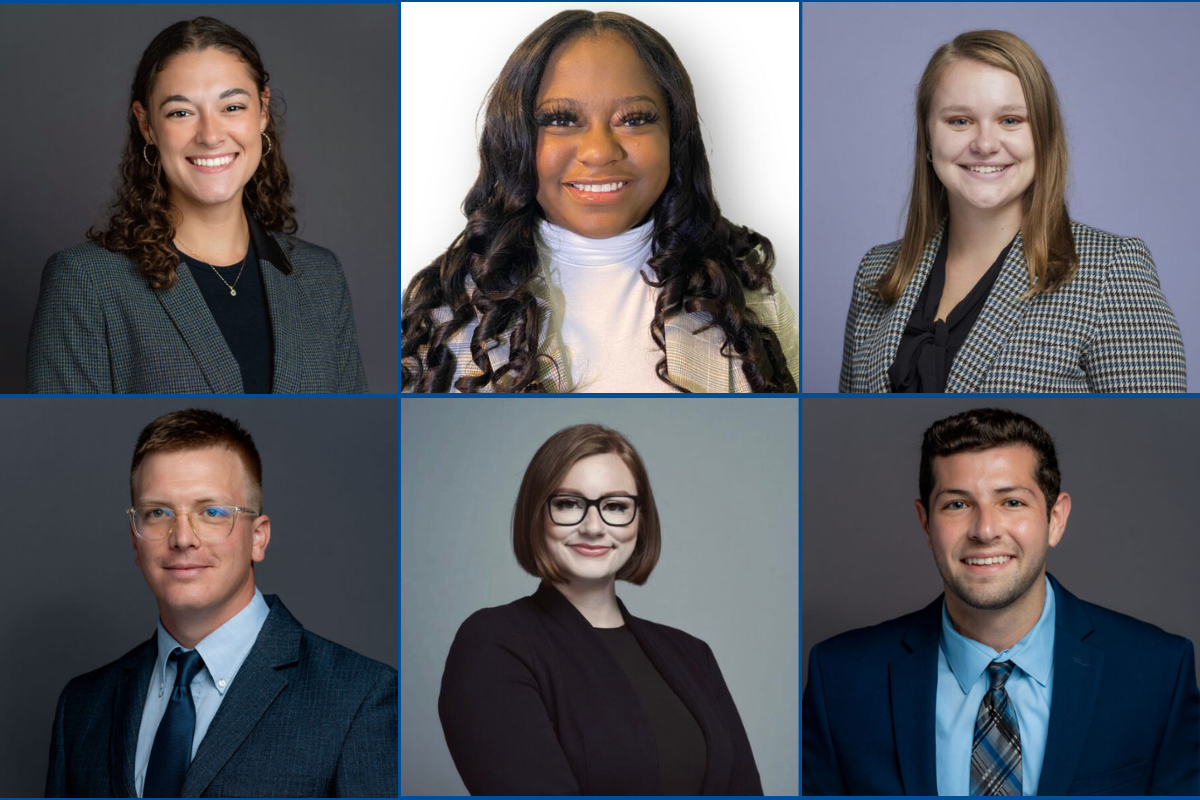Emory Law students earn national public interest fellowships

Six Emory Law students will spend this summer getting hands-on experience working in public interest jobs because they received fellowships through the John Paul Stevens Foundation. The students and their sponsoring organizations are:
- Jillian Barger 26L | U.S. Attorney’s Office, Northern District of Georgia
- Diamond Belgrave 25L | DeKalb County Office of the Public Defender
- Hannah Krawczyk 25L | Georgia Resource Center
- Andrew Newell 26L | Georgia Asylum and Immigration Network
- Carolyn Paul 25L | Georgia Justice Project
- Jack Tolbert 26L | U.S. Attorney’s Office, Southern District of Florida
(Paul is a second-time recipient, having received a 2023 fellowship for her work with the Georgia Innocence Project.) The Foundation is named for the late U.S. Supreme Court Associate Justice John Paul Stevens and established by a group of his former law clerks to honor him upon his retirement in 2010. Emory Law’s fellowships currently include a $6,000 summer stipend, funded jointly by the Stevens Foundation and matching grants from Emory Public Interest Committee (EPIC) Grant donors.
Since 2012, Emory Law students have used their fellowships to work in otherwise unpaid positions on behalf of the disabled, immigrants, for human and civil rights organizations, the ACLU, the Environmental Protection Agency, state and federal prosecutors, state and federal public defenders, and those appealing a death sentence. The number of fellowships awarded annually to Emory Law students has increased, with at least six awarded in the past three years. Since 2012, 45 of our students have received Stevens Fellowships.
“Emory Law is grateful to the Stevens Foundation for investing in our students and proud to be a part of this prestigious program alongside other schools with proven commitment to public interest law,” said Center for Public Service Assistant Director Corey Hirokawa. “Stevens Fellowships not only provide essential funding to students committed to pursuing public interest careers, but also connect them with a network of like-minded future public service leaders from other law schools across the country. We’ve seen that participation in a Stevens Fellowship both cements students’ intention to pursue careers in public interest and springboards those careers.”
In June, the Stevens Foundation achieved the milestone of funding 1,000 fellowships since 1997. Those fellows have worked with more than 330 public interest organizations in both the United States and abroad. Only 38 U.S. law schools in the country are authorized to participate in the program. Applicants must arrange a full-time unpaid summer public interest law internship with a government agency or a nonprofit. They must also have a strong demonstrated interest in social justice and service in the public arena. Other factors weighed are academic achievement and financial need.
The Foundation bets on proven odds that those who receive fellowships will continue their work on behalf of public interest when they launch their careers. The organization reports that 74% of Stevens Fellows have gone on to work in public interest and social justice positions.